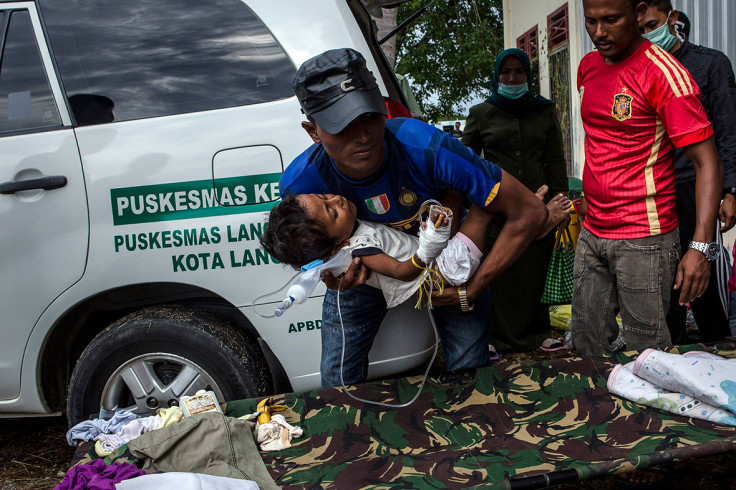Boat carrying hundreds of Rohingya and Bangladeshi migrants lands in Aceh, Indonesia

Rohingya and Bangladeshi migrants landed in Indonesia on Wednesday 20 May, an Indonesian search and rescue official said.
"In total we found around 500 people out at sea and they are being brought to land in smaller boats," Khairul Nova of the national search and rescue agency told Reuters. Nova added that the migrants had landed in the town of Kuta Binje in Aceh.
More than 350 migrants have been rescued by local fishermen, a Reuters witness said. The latest group adds to the more than 2,000 starving refugees who have managed to land in Indonesia and Malaysia after weeks of drifting in the Andaman Sea with little food or water.
Nearly 3,000 migrants have been brought ashore or rescued off the coasts of Indonesia, Malaysia and Thailand. Aid workers have warned that up to 8,000 more migrants may be stranded in the Andaman Sea with nowhere to go and limited supplies of water and food.
Regional governments of Indonesia, Malaysia and Thailand have refused to engage in search-and-rescue operations, instead repulsing the boats back to sea.
A three-way game of human ping pong
Phil Robertson of Human Rights Watch Asia accused the Thai, Malaysian and Indonesian navies of "playing a three-way game of human ping pong".
The UN has warned of a "massive humanitarian crisis" looming on the Rohingya migrants because no government is willing to accept the migrants.
The Indonesia, Thai and Malaysian foreign ministers are due to meet in Kuala Lumpur on 20 May to discuss the unfolding crisis Jakarta has said it would prevent migrant boats from landing on its shores but would provide humanitarian assistance at sea if needed.
Aid organisations such as the UN refugee agency, the International Organisation for Migration (IOM) and others have urged the leaders of Indonesia, Malaysia and Thailand "to protect migrants and refugees stranded on vessels in the Bay of Bengal and the Andaman Sea, to facilitate safe disembarkation, and to give priority to saving lives, protecting rights, and respecting human dignity".
© Copyright IBTimes 2024. All rights reserved.





